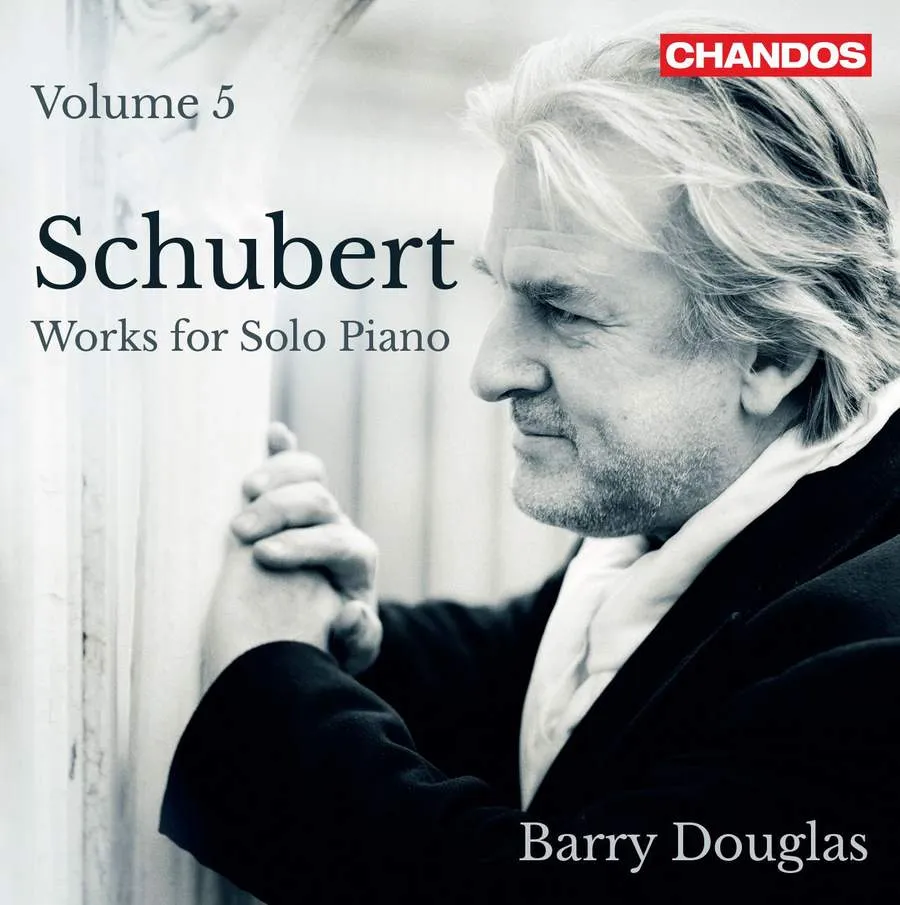
Schubert Works for Solo Piano, Vol. 5 – Piano Sonata, Op. post. 143, D784; Piano Sonata, Op. 53, D850; Schwanengesang, D957 – Liebesbotschaft; Ständchen Barry Douglas (piano) Chandos CHAN 20157 72:22 mins
For his fifth volume of Schubert’s piano works, Barry Douglas turns to a contrasting pair of sonatas composed in the 1820s, when Schubert was already ill and approaching the end of his short life.
The grandly imposing A minor Sonata in three movements was written when Schubert was in a desperately low phase, following his contraction of syphilis and the horrific treatment for that then fatal, widespread disease. Douglas performs with tremendous grandeur, emphasising expansiveness with his steady tempos and full, rounded sound. After two quite weighty movements, the closing Allegro vivace is thrillingly demonic and driven. The climaxes are truly titanic, transporting the sonata far away from the intimate drawing room into a modern, vast concert hall.
The D major Sonata was written in 1825, in a more optimistic period while Schubert was on a rare holiday in the Austrian Alps. It opens exuberantly, with a chordal tattoo which Douglas presents not playfully, but determinedly. Fingerwork is pin-sharp in the rapid passagework, but the overall conception remains quite stately.
The second movement is cautiously paced despite Schubert’s indication of Con moto (with movement), but Douglas achieves a transparent texture, voicing the chords with infinite care. The closing Rondo is a delight, performed with exquisite delicacy of touch which lends seriousness to what is, essentially, a very simple piece.
Given Douglas’s evident enjoyment of grander textures, the inclusion of Franz Liszt’s densely-written transcriptions of Schubert’s songs ‘Liebesbotschaft’ and ‘Ständchen’ (published within Schwanengesang) is entirely appropriate – a well-chosen finish.
Natasha Loges